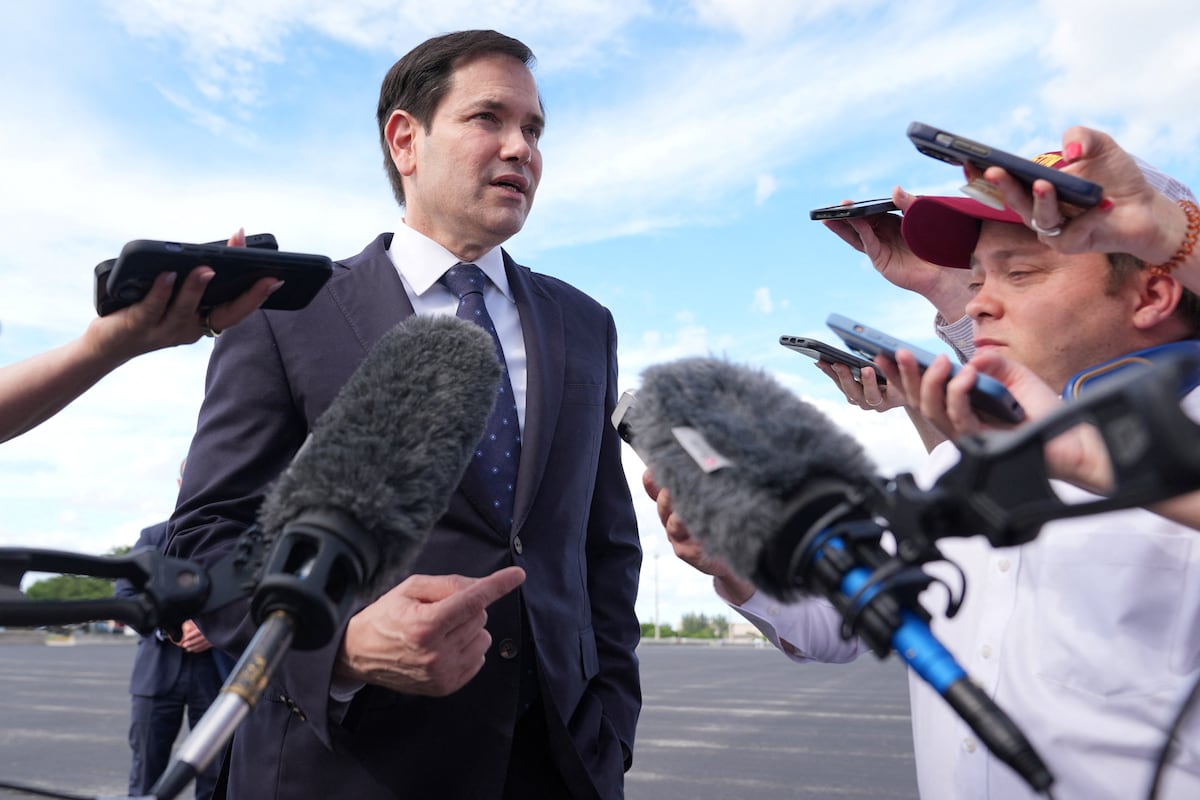The trip to Mexico by U.S. State Secretary Marco Rubio has the Claudia Sheinbaum administration holding its breath. It is the first visit by one of Donald Trump’s top aides, and it represents a crucial step in balancing bilateral relations, which have become strained over the past eight months due to Washington’s aggressive policies on immigration, tariffs, and drugs, as well as its demands in the fight against crime.
President Sheinbaum will meet with Rubio on Wednesday at the National Palace in Mexico City and hopes, as she indicated in a press conference, that the meeting will lead to an understanding with the State Secretary. The Mexican president wants greater collaboration not only on issues such as drug trafficking, irregular immigration and trade agreements, but also greater transparency in the exchange of information regarding Mexican drug traffickers who are being tried in the United States.
Rubio—a Cuban-American politician who is ultraconservative, fiercely protectionist, and a strong critic of Mexico— will be paying his first official visit to the country as head of the State Department, and will later travel to Ecuador. Until now, his agenda had not included Mexico despite the intense relationship the United States has maintained with the Sheinbaum administration since Trump’s return to the White House last January. Mexico was left out of the secretary’s first two tours of Latin America and the Caribbean earlier this year.
Washington has insisted that it will “deepen bilateral ties” and has proposed “burden-sharing” with Mexico to “dismantle cartels,halt fentanyl trafficking, end illegal immigration, reduce the trade deficit, and promote economic prosperity and counter malign extra continental actors.”
For her part, Sheinbaum has emphasized that she seeks to sign an agreement for greater security collaboration that includes joint investigations as well as the exchange of information between both countries, a pending demand that has worsened with the recent arrests of drug lords facing criminal prosecution north of the border.
Mexico has asked the United States to share details of the collaboration agreements it reached with two rival drug traffickers, Ismael El Mayo Zambada and Ovidio Guzmán, in exchange for guilty pleas. Faced with the possibility of Mexican political and business leaders being exposed as having ties to drug trafficking activities, Sheinbaum has criticized the affronts to Mexican sovereignty in the arrest of El Mayo. In the case of Guzmán, she questioned the lack of coordination with the Attorney General’s Office and criticized the United States for negotiating with “terrorists.”
Another disagreement with U.S. authorities was the announcement by the U.S. Drug Enforcement Administration (DEA) regarding Operation Portero, a joint program with Mexico to dismantle the agents who control smuggling corridors along the southwest border. Sheinbaum abruptly and categorically denied the existence of the program, stating that she does not know why the DEA announced an operation that does not exist. She added that the only agreement on the table has yet to be signed. “It is with the State Department and is fundamentally based on sovereignty, mutual trust, territorial respect—that is, that each party operates within its own territory—and coordination, without subordination,” she emphasized.
The situation was already tense due to the sanctions the Treasury Department announced in July against three Mexican financial institutions for alleged money laundering for the benefit of the country’s major cartels. Mexico launched its own investigations, but clarified that no legal action could be taken without evidence of the crime, as the United States had not shared it. “They haven’t sent a single piece of evidence indicating that money laundering is taking place.”
Rubio faces the challenge of reconciling these points of contention and seeking a space for cooperation during his meeting with the Mexican president. His first official visit is fraught with expectations after Rubio designated Mexican cartels as terrorist organizations and highlighted the country’s ongoing violence crisis.
Sign up for our weekly newsletter to get more English-language news coverage from EL PAÍS USA Edition
